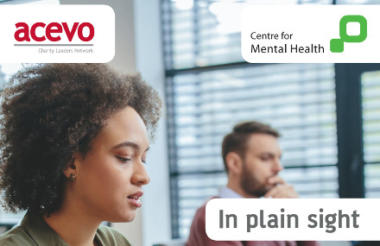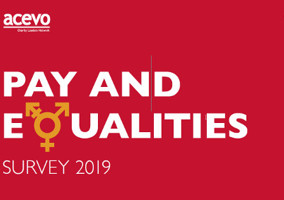Just 3 per cent of charity workers who have reported being bullied felt the complaint had been handled satisfactory, an investigation into workplace bullying in charities has found.
Acevo and the Centre for Mental Health have today published a report, In plain sight, and made six recommendations to help charities address bullying cultures, including appointing a trustee and senior executive to lead on staff wellbeing issues.
Some 524 people took part in a self-selecting survey about their experiences, and researchers conducted 20 in-depth interviews. The report emphasises that it cannot draw any conclusions about the prevalence of bullying in the sector, but that where it does occur it has a severe impact on individuals.
It found that 58 per cent of people reported bullying issues. But just 3 per cent of cases were “satisfactorily addressed”, while 68 per cent of cases were not resolved and 29 per cent were resolved unsatisfactorily.
Who are the bullies?
The majority of survey respondents said that chief executives and senior managers had bullied them.
Chief executives were involved in 45 per cent of cases, senior managers in 57 per cent and co-workers in 27 per cent.
Chairs and other trustees were cited in 17 per cent and 18 per cent respectively.
Nearly 90 per cent of respondents characterised their experience as “social bullying”, 25 per cent as “cyber bullying” and 7 per cent as “physical bullying”.
After the bullying took place, 67 per cent said that they left the charity.
Six recommendations
- Nominate one trustee and one senior manager to lead on staff workplace wellbeing
- Policies and procedures should reflect a commitment to promoting safe cultures
- Never use non-disclosure agreements to prevent people from speaking about their experience in a therapeutic setting
- The Charity Commission should clarify existing rules and guidance
- Leaders should initiate a sector-wide discussion to identify ways to improve sector guidance, such as the Charity Governance Code
- Leaders explore how to better collect and analyse data about workplace culture and the experiences of people with protected characteristics
‘We should be taking the lead’
Vicky Browning, chief executive of Acevo, said: “We believe that charities should be taking the lead on how we tackle bullying in order to create inclusive and supportive workplace cultures.
“I want to thank the people that took part in this research and trusted us with their experiences. It has enabled us to begin the process of tackling an issue that is rarely talked about publicly in the charity sector.”
Sarah Hughes, chief executive of the Centre for Mental Health, added: “It is now time for all of us who lead charities to take action to make sure we are providing a safe, healthy place for people to work in, and taking effective action when we need to deal with problems.”
Debra Allcock Tyler, chief executive of the Directory of Social Change: “This is a massive and insightful piece of work and Acevo deserve great credit for grasping the nettle of a complex issue. The report acknowledges that the evidence doesn’t tell us anything about the prevalence of bullying in charities or how this compares with other sectors. What it does do is helpfully identify and analyse some of the sector-specific problems and how we can start to solve them where they occur.
“I’ve worked in or with charities for most of my life and in my experience bullying in charities can happen when two things are not working: first, the organisation’s governance is dysfunctional, and second its culture and values are wrong, not understood or not being lived in the day-to-day. Addressing these has to be at the heart of efforts to reduce and hopefully eliminate bullying. And it takes leadership from both trustees and senior management to make change happen.”
|
Related articles













